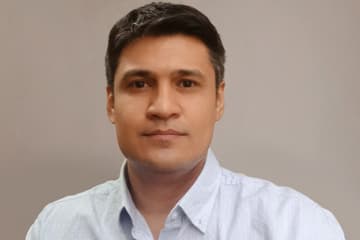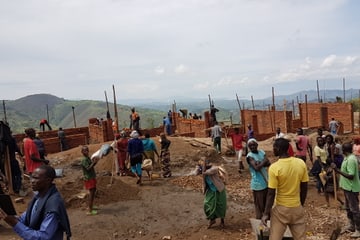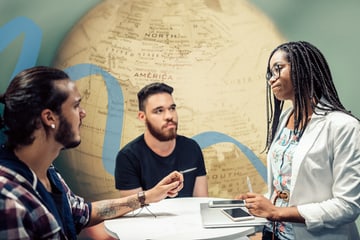"Prepare yourself and be mindful; you will not get a second chance to make a first impression"
As an expat, it is not always easy to find your place in a new team in a foreign country – Anvar Sabzaliev has experienced this and shares his observations and recommendations with you.

Anvar Sabzaliev is a Monitoring & Evaluation Officer with the UN WFP Somalia and brings 20 years of development cooperation experience, mainly in disaster reduction & climate change adaption. Anvar talks about how to be “a good expat “ when working abroad and how to best integrate into an international team. Anvar understands the expat perspective, being an expat himself, having worked on three continents for various UN organisations. But he also understands the local staff’s perspective, having worked eight years for the Swiss Cooperation Office in his hometown Dushanbe, Tajikistan.

New job, new country, new team – how to prepare and what to expect?
I cannot give any detailed recommendations here as it varies from place to place, depending on where you are going. However, generally speaking, when looking at today’s UN vacancies worldwide, more than 40% are in Africa and more than 20% in Asia. This means as a European or Swiss national applying for jobs in international cooperation, there is a high likelihood of you working in a country that is very different in terms of culture, language, religion, mentality or educational level. Inform yourself about the country and region you are going to before starting your assignment. Don’t rely too much on the terms of reference and do your own research. Read Wikipedia, Tripadvisor, travel blogs etc. and be prepared that the people on the ground may have different values from your own.
Before starting your assignment: don’t rely too much on the terms of reference and do your own research.

Different contexts – different life situations
Be aware that your colleagues motivation for working may differ from yours. While you, as an expat, may come to the country for the main purpose of doing a great job and making a change, for many local staff, this is “just a job”. On a Thursday evening, they may be more concerned about their relatives being sick or picking up kids from school than the Friday report deadline. You want to find a way to work effectively while at the same time being considered friendly. This, of course, is not easy. You may also find yourself working with either over- or under-qualified people for the job, which can create tension. In some places, the main criterion for finding local staff for an international organisation is their fluency in English. So, you may find an English teacher taking the function of a water and sanitation engineer due to a lack in local English-speaking experts. Or the other way around; the driver of your cooperation office may have a degree in medicine but is doing this job because it pays better. I, myself, started to work in international cooperation for the same reason. After graduating in 2001 from a law academy in Moscow, I returned to post-civil war Tajikistan, where my monthly salary with a Tajik government agency was 11 dollars. The best-paid work you could find at that time was with an NGO or an international organisation.
While you, as an expat, may come to the country for the main purpose of doing a great job and making a change, for many local staff, this is “just a job”.
How do you deal with those inequalities?
First of all, you need to be aware of existing inequalities, which many expats oftentimes aren’t. Just because of your passport, you may earn a higher salary than local staff. Or that a colleague or subordinate may be better educated or more experienced, but does this due to lack of better opportunities offered in their country. So, start by being observant, collecting information, and thinking. Don’t expect to be respected due to your title and qualifications. For instance, if you earn more than the rest of your team and you all go out to eat or drink – even if this may not be common to do in Switzerland – you may offer to cover the bill. Or, if office tasks require your team to work late hours, you may offer them a ride home for security reasons because you are driving a car with a diplomatic number plate.
Your last recommendations for better collaboration?
Basically a summary of what I’ve already said: be observant and meet people at eye-level. Don’t come with your personal views from your country on how things are supposed to work. You are one, and they are many. You have to be open to different ways of doing things. And importantly, people will be much more willing to make your job easier when they like you as a person. If you want to improve work effectiveness and professional collaboration, start with building good interpersonal relationships. After all, nobody will remember you as the one who wrote the best reports, but rather, the one who helped them out or shared good times.
If you want to improve work effectiveness and professional collaboration, start with building good interpersonal relationships.



